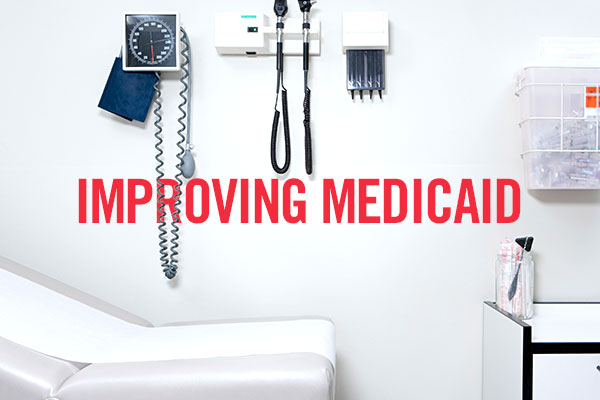Media

A $2,000 Blister and Other Medicaid Failures
Sunburns, warts, and blisters—Medicaid recipients receive Emergency Room (ER) treatment for these common ailments, costing state taxpayers millions of dollars according to a WTAE investigation by Paul Van Osdol. With nearly one in four Pennsylvanians depending on Medicaid for health insurance, using the ER for non-emergency needs has serious ramifications on Pennsylvania's state budget, but fundamentally, it demonstrates Medicaid's terrible design and lack of health care transparency.
In one outrageous example, Medicaid was charged $16,800 to treat a cough. That's more than double the $7,895 annual per capita spending of Medicaid expansion adults.
In the early years of Obamacare, proponents claimed expanding Medicaid would reduce ER use for non-emergency needs. That hasn't panned out.
ER visits dramatically increased in Oregon after their Medicaid expansion, and we predicted the same trend in Pennsylvania in 2015 when Pennsylvania first expanded Medicaid, in 2016, and again in 2017. Even the Washington Post highlighted this ongoing trend.
The problem is, many doctors do not accept Medicaid patients, making ER visits the most convenient form of care. Medicaid recipients struggle to find doctors and suffer longer wait times than those with private insurance, thanks to low provider reimbursement and a maze of red tape.
Medicaid expansion may have increased the number of Pennsylvanians with a health insurance card, but it ignored the underlying problem: a hard-to-navigate system fraught with provider over-billing and a failure to reward patients seeking high-value care.
In contrast, charity clinics have the freedom and flexibility to provide coordinated high-quality care in a welcoming and encouraging environment. In particular, free clinics effectively serve people whose chronic conditions often prevent them from working, trapping them in poverty.
Private insurance has a similar problem. Do you get a reward for finding a cheaper x-ray or a lower price on your blood work? Unless you have a high-deductible plan, the answer is no. On top of that, it often takes multiple phone calls to find an accurate price.
The healthcare industry faces a fundamental challenge: lack of meaningful prices to spur competition and reduce costs for higher quality services. Yet, we can lessen Medicaid's ER-overuse. Meaningful Medicaid reform can help Pennsylvanians—particularly healthy adults enrolled through Medicaid expansion—regain independence and better quality of care.